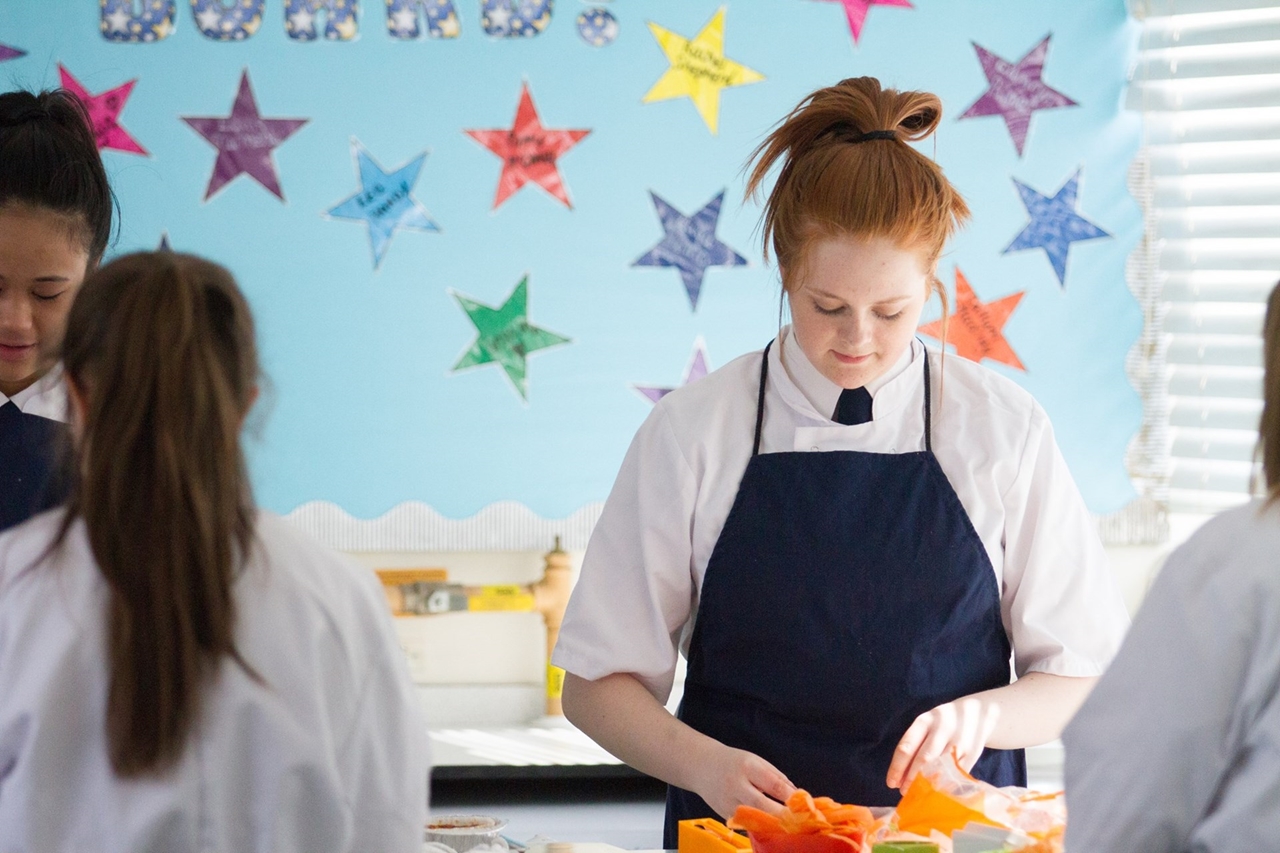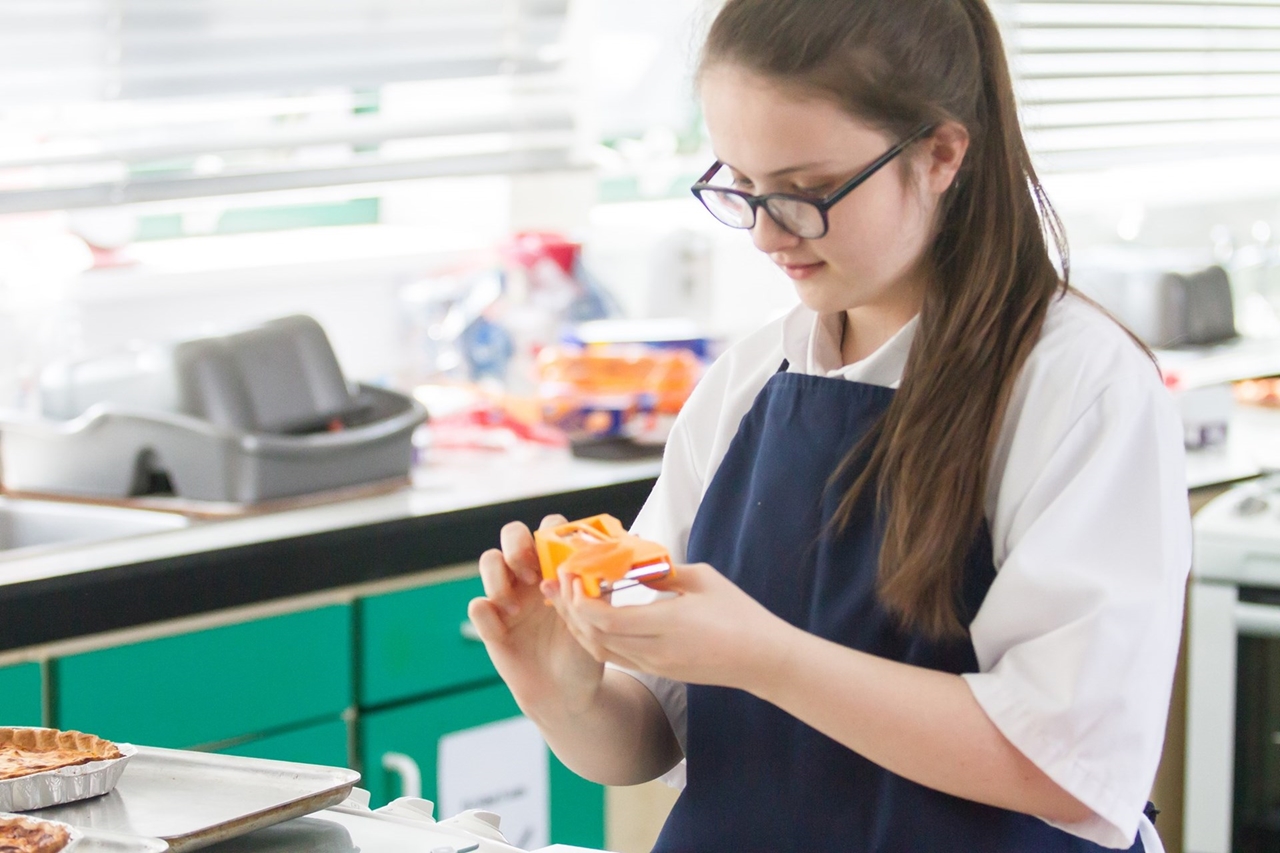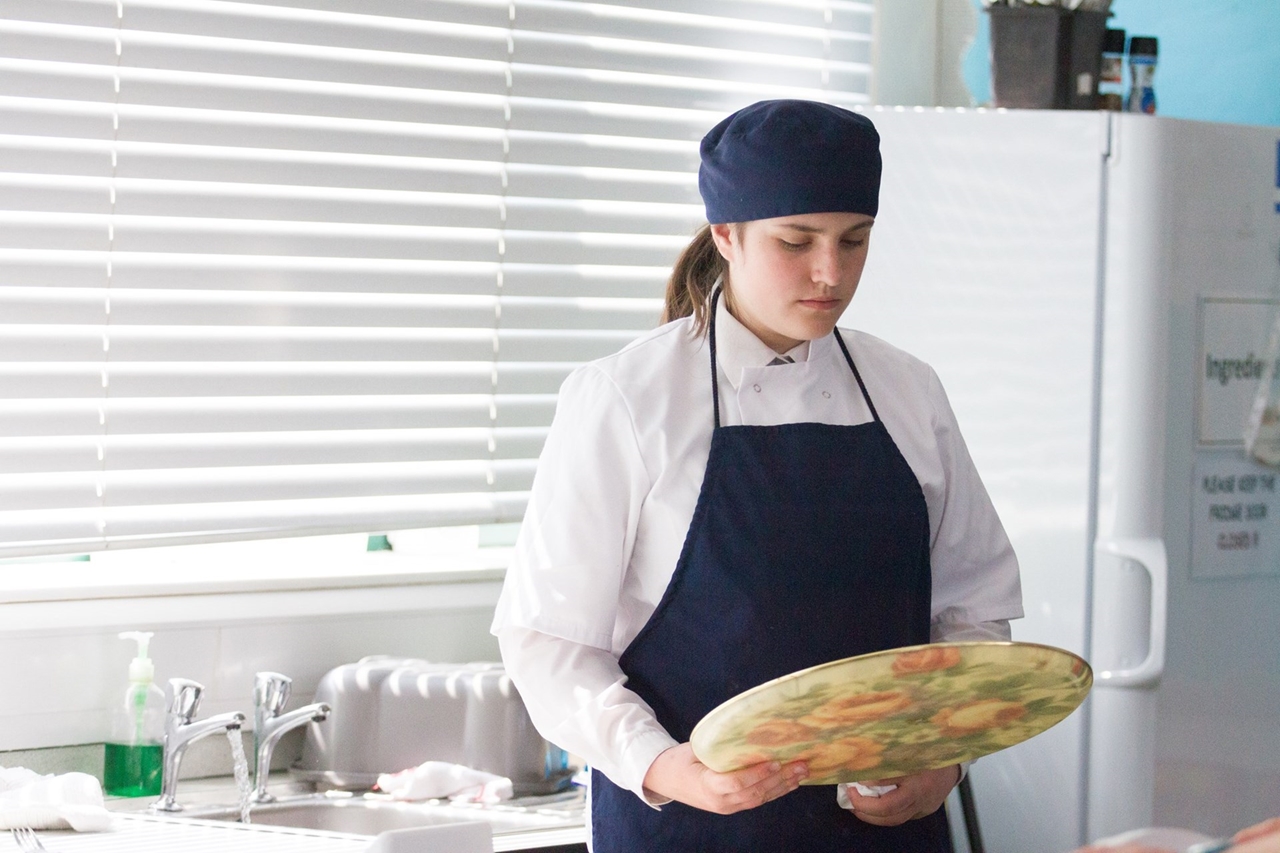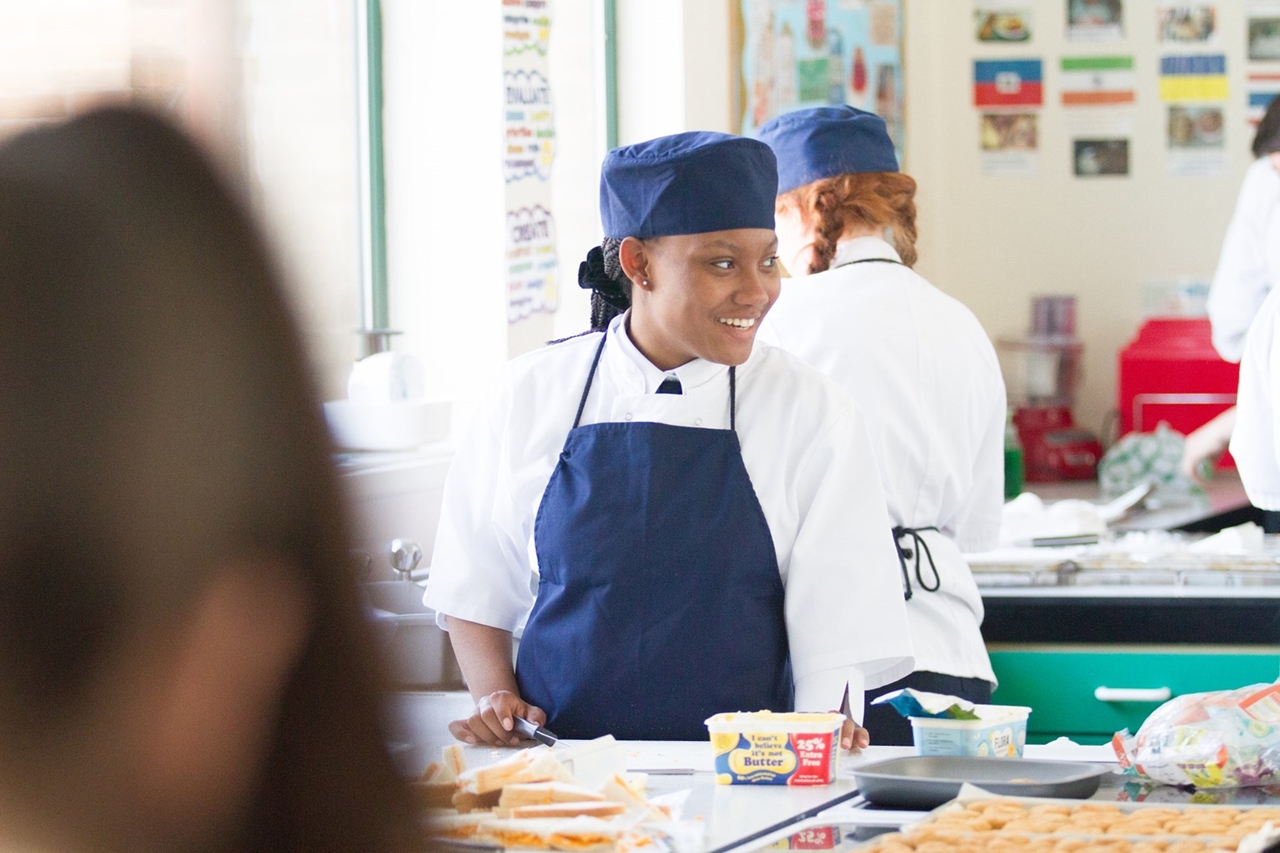Departments
Food & Nutrition
All pupils and students at Hagley Catholic High School study Food and Nutrition at KS3, and at KS4 students can choose whether to study GCSE Food Preparation and Nutrition. The department is made up of two specialist food teachers supported by a technician, who are fully committed to the education of the pupils:
- Mrs S Hingston - Teacher of Food and Nutrition - SHingston@emmausmac.com
- Mr M Button - Head of Technology and Teacher of Food and Nutrition - mbutton@emmausmac.com
- Mr D Goddard - Teacher of Food and Nutrition - dgoddard@emmausmac.com
- Mrs S Palmer - Teacher of Food and Nutrition - spalmer@emmausmac.com
To view the curriculum mapping document for the department please click the link to the right. If you have any queries then please contact the Subject Leader.
Subject Overview
At KS3, the focus of students learning is the acquisition of key culinary skills, as well as understanding where ingredients come from and the functional properties of ingredients. Skills are built on each year throughout Key Stage 3.
At KS4, students follow the EDUQAS Food Preparation and Nutrition course. The course assesses six key strands:
- Food Commodities
- Diet and Good Health
- Nutrition
- Food Provenance
- Scientific Properties of Food
- Cooking and Food Preparation
At both KS3 and KS4, we aim to encourage learning of both knowledge and skills through practical sessions.
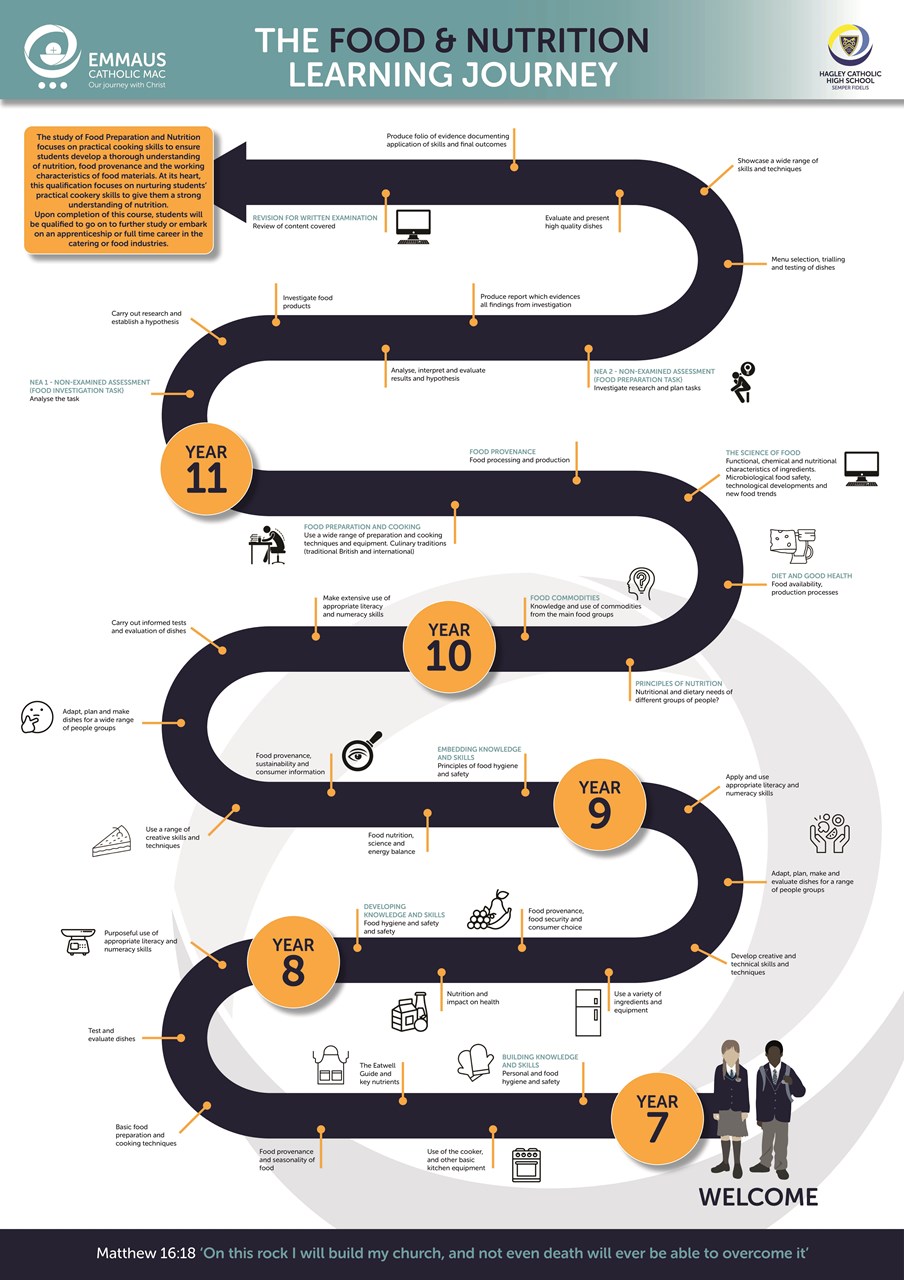
Year 7
Skills - Working properties of ingredients. How to season foods. Taste testing. Understanding of the source. Nutritional value. Seasonality and characteristics of ingredients. Hygiene and safety issues linked to Food Tech. Organisation of the food room. Use of equipment. Health enhancing foods. Recipe adaptation. Competent in a range of cooking methods.
Assessment - During the 15 lesson rotation, pupils will be assessed through homework’s, practical and written elements. They will also evaluate each of their products made.
Year 8
Skills - Nutritional labelling. Disassembly. Analysing food labels and taste testing. Working properties of ingredients, especially flour and cake products. Aeration/raising agents in cake and bread products. Multicultural breads. Types of seasonings and how to taste test seasoning of food products. Recipe adaptation and competent in a range of cooking methods.
Assessment - During the 15 lesson rotation, will be assessed through homework’s, practical and written elements. They will also evaluate each of their products made.
Year 9
Skills - Hygiene & food poisoning. Methods of heat transfer. Sauce making, thickening and gelatinisation. Choux, puff and filo pastry. Finishing techniques to alter sensory, nutritional and aesthetic properties. Healthy eating, nutrients functions and sources. Emulsions, foams, suspensions. Multicultural foods. Nutritional needs of target groups. Functional properties of foods. Decorative techniques. Sensory taste testing. Flavourings. Family meal. Varied practical skills.
Assessment - During the 15 lesson rotation, will be assessed through homework’s, practical and written elements. They will also evaluate each of their products made.
Year 10
At KS4 you can choose to study GCSE Food & Nutrition. This course is the EDUQAS Specification. This course has two different components. Component 1 is a written examination with 50% of the final marks and tests students’ knowledge on the principles of food preparation and nutrition. Component 2 is a non-examined unit internally assessed, externally moderated and based on practical tasks set by the exam board. Throughout Year 10 most of the theory is completed and an end of topic test is carried out at the end of each topic. Students will also be taught specific high level practical skills that will be needed for their NEA 2 assessment.
Year 11
NEA 1 and NEA 2 are completed in Year 11. NEA 1 is The Food Investigation Assessment. A scientific food investigation which will assess the learner’s knowledge, skills and understanding in relation to scientific principles underlying the preparation and cooking of food. NEA 2 is The Food Preparation Assessment, students will need to prepare, cook and present a menu which assesses the learner’s knowledge, skills and understanding in relation to the planning, preparation, cooking and presentation of food. These assessment will be based on a choice of tasks released by WJEC annually.

